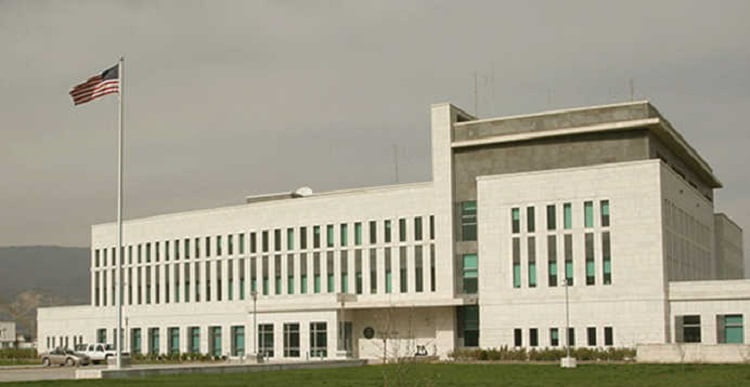Running commentary: Change in Rustavi 2 management, what now?
Change in the management of Rustavi 2 TV station has many Georgia-watchers looking with anxiety at the possibility of a vocal government critic reversing its editorial line. How real is this danger and what is in stock for Georgia’s media scene? We spoke with Willam Dunbar, longtime Georgia-watcher and analyst.
Q: William, after the change in Rustavi 2 management how real do you think is the possibility of the channel being really “silenced”? In the age of digital broadcasting, can’t the team can just move elsewhere, if they are unhappy with the new management?
A: The fact is that some 80% of Georgians get their news from TV – the internet is still a distant second. Just like in 2007/8, when the UNM took over Imedi TV, we will see the current government monopolize broadcast media.
You’re right that the current editorial voice of Rustavi 2 will not be lost completely, it will go online or to smaller TV channels (just like the way in which opposition voices migrated to Maestro and Kavkasia in the years before 2012 ). Still, true media pluralism will suffer a huge blow because there will be no opposition voice capable of reaching the whole country.
Q: When Rustavi 2 went off air the first time around, still in Eduard Shevardnadze’s times, there has been a groundswell of support form Georgia’s foreign friends. Not now. Why do you think this is?
Probably because this is the result of fully independent legal proceedings at the ECHR. There is a lot to criticize in the judgement, but in hindsight it was foolish to expect Strasbourg to rule on the relative degree of independence of the Georgian judiciary over the last 15 years.
Q: ECHR considered inadmissible the parts of application that tackled the freedom of information and did not look into that matter. Nonetheless this is a real concern. Still, no word about the need to preserve editorial independence from the EU or the US embassies?…
I expect there will indeed be some sort of statement about the importance of a diverse media landscape in due course. The difficulty for Rustavi 2 now, as opposed to under Shevardnadze, is that the channel is so fully identified with the UNM and with Saakashvili personally. It is not merely an opposition channel, it is a UNM channel. If you add to this the recent inflammatory diatribe from Giorgi Gabunia, it makes it more difficult for the west to voice full support
Q: So do you have a feeling that among Georgia’s western interlocutors Rustavi 2 has lost its respectability? If so, is this a new thing, or dates back from previous administration?
All Georgian broadcast media are scurrilous, partisan and unethical. They always have been. Rustavi 2 was just the most prominent, and the most foul mouthed. The important thing, in the absence of the media miraculously becoming better, is to have a range of scurrilous, partisan and unethical outlets. Georgia’s western friends know this.
Q: Yet it makes it hard for them to offer full and open support, is that what you’re saying?
I think the situation remains so tense and unclear they are refraining from saying anything. I think if we start going towards the 2020 polls with a completely one-sided TV sector there will be a strong response. At least I hope so. And once again, the Europeans will refrain from anything that would appear to criticize a multilateral European institution.
Q: Now that we are on that topic, what is your outlook for the media scene towards 2020?
Well, let’s see what happens to Rustavi 2 first. How fast will the editorial U turn be? I would expect [former Director General Nika] Gvaramia, his backers, and some key aides to set up some sort of “continuity Rustavi 2” channel, maybe a bit like Bidzina Ivanishvili’s TV9 was before 2012.
Georgians are sophisticated media consumers: if and when Rustavi 2 begins to toe the government’s line they will look elsewhere for news. That happened with Imedi, Maestro, and to Rustavi 2 itself after 2012. But perhaps more important is what will happen online, with the Government’s troll army fully battlefield ready and no one on TV to expose them.
Q: In what sense? Do you think the troll army would take on and disrupt the established online media sources?
I worry that the amount of hate-fueled disinformation, often seemingly government-sponsored, will increase as we head towards what will be tight and unpredictable elections. Without a channel like Rustavi 2 there to act as a watchdog (albeit a compromised, partisan watchdog), it could get much worse.
